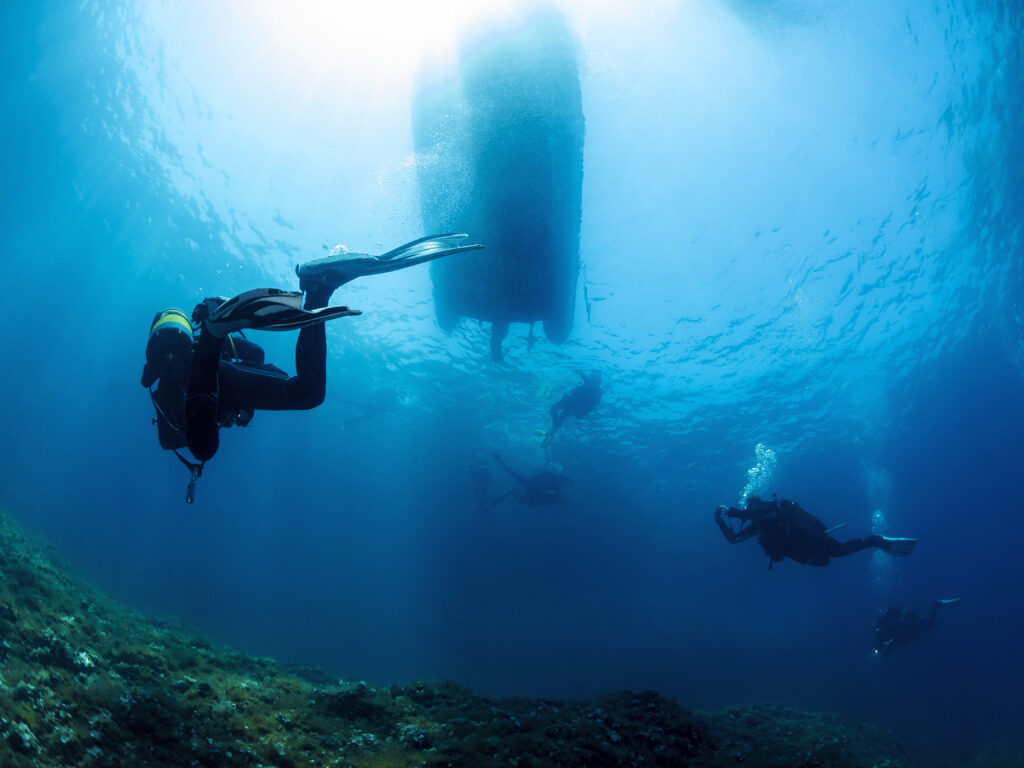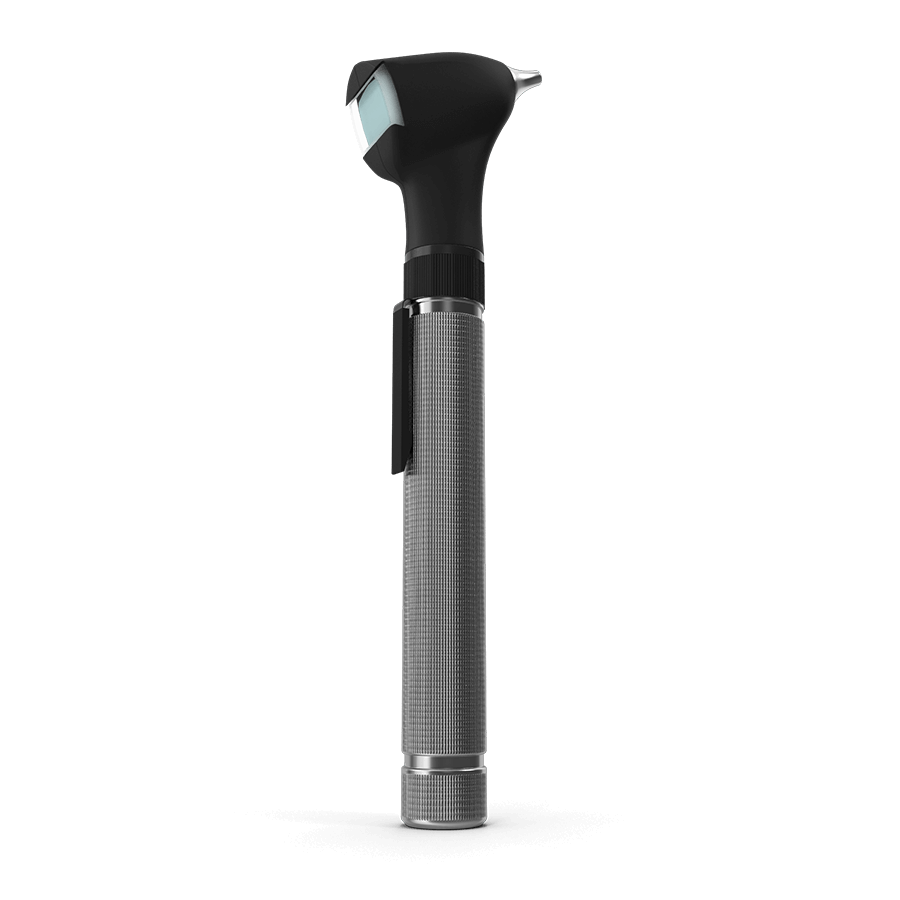Table of Contents
Intro
Summer in the Algarve is a time of sunny beaches, blooming flora, and outdoor adventures. However, the warm coastal climate and seasonal activities can pose unique challenges to your ears. From allergy-related congestion to frequent dips in sea water, and even the pressure changes of summer travel, it’s important to safeguard your hearing health. In this article, we address two common issues – allergy congestion and sea water exposure – and provide guidance for managing ear pressure during flights or boat dives along the Algarve coast using safe ear-clearing strategies. We’ll also include general recommendations to keep your ears healthy all summer long.
Summer Allergies and Ear Congestion
Seasonal allergies don’t just cause sneezing and itchy eyes – they can also affect your ears. In the Algarve, various pollens (from grasses, olive trees, etc.) may linger into summer, triggering allergic rhinitis (hay fever) in sensitive individuals. Allergy symptoms like nasal congestion and sinus inflammation can lead to Eustachian tube dysfunction, where the tube connecting the back of your nose to your middle ear becomes swollen or blocked. When this tube is congested, you might feel fullness or pressure in the ears and notice your hearing sounds muffled or “plugged.” In fact, allergy-related ear pressure can resemble the sensation you get during an airplane’s takeoff or landing. The trapped air and fluid in the middle ear due to allergies create an imbalance that distorts sound and may even cause discomfort. Additionally, excessive mucus from allergic reactions can accumulate and induce fluid buildup behind the eardrum
potentially leading to temporary hearing loss or increased risk of a middle ear infection if bacteria grow in the fluid.
How to find relief: The good news is that allergy-induced ear congestion is usually manageable with prompt care. Start by treating the underlying allergies – over-the-counter antihistamines, decongestant pills, or steroid nasal sprays can reduce nasal swelling and help open up the Eustachian tubes, allowing your ears to equalize pressure more normally. Simple home remedies may complement this: for example, inhaling steam from a warm shower or using a saline nasal rinse can clear the nasal passages and ease ear pressure. Staying well hydrated is also important; drinking plenty of fluids helps thin out mucus secretions. Some people find that chewing or yawning (which activates the muscles around the Eustachian tube) can momentarily pop their ears and relieve pressure. Most allergy-related ear symptoms will improve once the allergy flare-up subsides or with these remedies. However, if you experience severe ear pain, persistent pressure, or hearing loss even after addressing your allergies, you should consult a healthcare professional. In some cases, allergies can lead to an ear infection or fluid buildup that might require prescription treatment. For Algarve residents and visitors, keeping up with your allergy medications during high pollen days – and possibly taking them before activities like flights (more on that below) – will go a long way toward preventing uncomfortable ear congestion.
Sea Water and Swimmer’s Ear Risks
A trip to the Algarve isn’t complete without enjoying the sea – whether it’s swimming at the beach, surfing the Atlantic waves, or snorkeling in the clear waters. While these activities are refreshing, frequent exposure to water in the ears can sometimes lead to otitis externa, commonly known as “swimmer’s ear.” Swimmer’s ear is an infection of the outer ear canal, usually caused by water that remains trapped in the ear canal after swimming. The Algarve’s ocean water (and even hotel pools) can introduce moisture and bacteria into the ear. If that water doesn’t drain out, the moist environment allows bacteria to multiply and infect the skin of the ear canal.
Earwax buildup can worsen the risk – wax can absorb water like a sponge, holding moisture in the canal and creating a breeding ground for germs. Indeed, during hot summer months when people are in and out of the sea or pool, swimmer’s ear cases tend to rise.
Recognizing swimmer’s ear: Early on, you might notice the ear feels itchy or slightly clogged. As the infection develops, there can be pain in the ear, which often worsens when you tug on the outer ear or press the little front flap (tragus). The ear canal skin may swell, and sometimes fluid discharge or pus can leak out. Unlike a middle ear infection, swimmer’s ear does not typically come with deep internal pressure or fever, but it can be very painful and tender to touch. If you suspect you have swimmer’s ear (especially if pain is significant), seek medical attention – a doctor can clean the ear and prescribe antibiotic ear drops to clear the infection.
Preventing water-related ear infections: You don’t have to give up swimming to protect your ears; a few precautions can make a big difference:
Keep your ears as dry as possible. Use well-fitted earplugs when swimming (or a swim cap that covers the ears) to prevent water from entering the ear canal. Many pharmacies in Algarve’s tourist areas sell swim plugs, including special vented plugs for surfers or frequent swimmers. If you don’t use plugs, be gentle and thorough in drying your ears afterward.
Dry your ears thoroughly after swimming or showering. After you get out of the water, tilt your head so each ear faces downward to encourage water to drain out. You can gently tug your earlobe in different directions while the ear is facing down – this straightens the ear canal and helps any trapped water find its way out. Then, use a corner of a towel to pat the outer ear dry. Do not stick the towel (or anything else) deep into the canal, only dry what you can reach at the opening. Some people also use a hair dryer on a cool or low setting; hold it at least 15-30 cm (a few inches) from your ear to gently evaporate remaining moisture.
Avoid inserting objects into your ears. It might be tempting to use cotton swabs, your finger, or other objects to “clean out” water or wax, but this can injure the ear canal skin and push debris further in. Such trauma makes infections more likely. The ear canal has its own self-cleaning mechanism with earwax; interfering with it often does more harm than good.
Don’t remove all your earwax. Earwax actually serves a protective function – it has antibacterial properties and forms a slight barrier against moisture. The CDC notes that earwax helps prevent outer ear infections, so you shouldn’t routinely dig it out. If you suspect you have excessive wax (like feeling of blockage or reduced hearing), have it evaluated by a healthcare provider who can safely remove it if needed. Especially before a vacation of heavy swimming, it’s wise to have a quick ear check: a doctor can clear any heavy wax build-up before it causes an issue on your trip.
Pre-treat skin conditions: If you have eczema or sensitive skin in your ears, consider applying any prescribed protective eardrops or lotions before swimming, as directed by your doctor. Also, prior to holiday is a good time to resolve any existing ear infections – if you’ve recently had an ear infection or surgery, get medical clearance before swimming.
By following these steps, you can significantly lower the chance of swimmer’s ear while enjoying the Algarve’s waters. Should you feel persistent itching, pain, or discharge from the ear after swimming, do visit a local clinic. Ear infections are easier to treat early, before they become severe.
Managing Ear Pressure on Flights and Dives
Holiday travel often involves flying into or out of the Faro airport, and many visitors also enjoy boat trips along the Algarve coast that might include snorkeling or scuba diving. These activities come with rapid pressure changes that can affect the ears. If you’ve ever experienced “ear popping” on a plane or discomfort descending underwater, you’ve encountered barotrauma – stress on the eardrum due to unequal pressure between the inner ear and outside environment.
Ear pain in airplanes (Airplane Ear): Air pressure drops as a plane climbs and rises again when the plane descends. If your ears cannot equalize the pressure quickly, you’ll feel that familiar fullness, pressure, or pain known as airplane ear. Normally, when we swallow or yawn, our Eustachian tubes open and allow air to flow into or out of the middle ear, equalizing pressure. However, during fast altitude changes, or if you’re congested from a cold or allergies, the tubes might not function optimally. Allergies, in fact, are a common risk factor – having a stuffy nose or sinus congestion makes you more prone to severe airplane ear. The key to prevention is helping your ears equalize early and often during the flight’s ascent and descent.
Safe ear-clearing strategies for flights: As the plane takes off or prepares to land, yawn and swallow frequently to stimulate the Eustachian tubes. You can chew gum or suck on hard candy to encourage frequent swallowing – this is a simple trick that often works for mild pressure. Another technique is the Valsalva maneuver: take a breath, pinch your nostrils shut with your fingers, close your mouth, and gently blow as if trying to exhale through your nose. This should send air toward your ears and can “pop” them open, equalizing the pressure (take care to blow gently – do not force it, as blowing too hard can itself cause injury). Repeat this maneuver a few times, especially during landing when pressure changes are most intense. It’s important not to sleep during takeoff or landing so that you can actively do these pressure-equalizing exercises; if you sleep through descent, your ears might not adjust and you could wake up with pain.
If you know you’re congested or prone to ear issues, plan ahead. Use a nasal decongestant spray about 30 minutes to an hour before the plane takes off and again before it starts to descend. This can shrink nasal tissues and help your Eustachian tubes open. (Always follow the directions and avoid overusing sprays – typically, you shouldn’t use them for more than a few days in a row.) Oral decongestant pills can also help if your health allows them – for example, taking a pseudoephedrine pill a half hour before flying may keep your ears clearer. Allergy sufferers should be diligent with their medication before travel; taking your antihistamine or nasal steroid on schedule (about an hour prior to the flight) can prevent a flare-up of congestion in the air. Another handy device is filtered earplugs (such as “ear pressure relief” plugs like EarPlanes). These special earplugs slow down the rate of pressure change on your eardrum during flight. You can wear them during takeoff and landing – they won’t completely prevent pressure difference, but they can make the change more gradual, and many travelers find they reduce discomfort. Remember, even with these plugs, you should still swallow or yawn to actively equalize when you can.
Ear pressure in diving: When you go under water, pressure increases much faster with depth than it does in air. Just a few meters down while snorkeling or scuba diving, you might already feel your ears squeeze. Similar to flying, the solution is to equalize the internal pressure with the external – divers achieve this by various methods (the same idea of blowing out gently with the nose pinched, or swallowing, or wiggling the jaw). Before you dive or even duck dive for snorkeling, ensure you can pop your ears at surface. If you can’t, do not force yourself down. While descending, equalize your ears every meter or so, before you feel pain. It’s often said to “stay ahead” of the pressure – don’t wait until it becomes very uncomfortable. If you notice pain or a blocked feeling that you can’t relieve, stop your descent and ascend a little until the pressure eases, then try equalizing again. Never continue descending while your ears hurt, as that is a sign the pressure is not balanced and you could injure your eardrum. In fact, one expert tip is: “Don’t try to push through pain… If your ears begin to hurt, ascend a few feet and try equalizing again”. Most certified divers learn this, but even casual snorkelers should be mindful – if you’re diving down to look at fish or caves, equalize on the way down.
Additional tips for protecting your ears during dives: descend feet-first (head-up) when possible, because it makes equalizing easier than a head-down descent. Clear your mask gently (water up the nose can irritate nasal passages and create more congestion, so keeping water out of your nose helps). Avoid diving if you have a cold, bad allergies, or sinus infection – it’s a recipe for ear pain and potential injury. And just like on land, avoid excessive force; be gentle with any ear-clearing maneuvers to prevent damage. If after a flight or dive you experience ear pain, blocked hearing, or dizziness that doesn’t resolve within a day, you should get a medical check to rule out barotrauma (like a small eardrum rupture or middle ear fluid). Usually these heal on their own, but a doctor can advise if any treatment or precautions are needed.

General Recommendations for Healthy Ears in Summer
Hearing care should be part of your summer wellness routine. Here are some general tips to keep your ears safe and sound during the Algarve summer (and beyond):
Protect your ears from water: When swimming, especially in the sea or pools, consider using swim earplugs to keep water out. Always dry your ears after water exposure (tilt your head, let it drain, and gently towel dry the outer ear). Avoid prolonged use of earbuds or earphones with wet ears as well, since moisture trapped by devices can encourage fungus or bacteria.
Manage allergy symptoms: Stay ahead of seasonal allergies by using medications (antihistamines, nasal sprays, etc.) as prescribed during high pollen periods. Keeping your nasal passages clear will help prevent the domino effect of congestion leading to ear blockage. On especially dusty or high-pollen days, limiting outdoor exposure or wearing a mask/sunglasses might reduce your allergy load and thus protect your ears from congestion.
Be cautious with ear cleaning: You generally should not put cotton swabs or any objects into your ear canals – this can push wax deeper or injure the lining. Instead, let the ear’s natural processes work. If you frequently build up earwax, get an occasional professional cleaning at an Audiocare clinic or ENT office rather than DIY methods. Maintaining a healthy amount of earwax actually helps fight off infections.
Prepare for changes in pressure: Whether you’re flying or diving, plan ahead to equalize ear pressure. Carry chewing gum or lozenges when you fly, and pack a pair of pressure-regulating earplugs if you’re a sensitive flyer. If you’ll be trying scuba diving, learn the proper ear-clearing techniques from your instructor and never dive with a congested head. These precautions will ensure you don’t end up with a vacation-ruining ear injury.
Take care of hearing devices: If you use hearing aids or any in-ear devices, remember to keep them dry and clean during summer activities. Moisture from sweat or water can damage hearing aids – consider using water-resistant covers or storing them safely during swimming. At night, open the battery compartment to air them out (or use a dehumidifier case if you have one). And avoid exposing them to extreme heat (don’t leave them on the dashboard in direct sun, for example).
Know when to seek help: Lastly, pay attention to your ears. Temporary discomfort from pressure or a bit of water should resolve in a short time. But if you have persistent pain, significant hearing loss, ringing in the ears, dizziness, or discharge, it’s time to see a healthcare professional. The Algarve has excellent ENT specialists and audiologists (for instance, Audiocare clinics) who can assess and treat ear problems. Early intervention can prevent minor issues from becoming long-term damage.
With these strategies in mind, you can enjoy the Algarve’s summer fun while keeping your ears healthy. Whether it’s preventing allergy congestion, avoiding swimmer’s ear, or coping with pressure changes, a little ear care know-how will ensure you hear every wonderful moment of your vacation clearly and comfortably.
References
- https://foxvalleyent.com/patient-resources/allergies/can-seasonal-allergies-affect-your-ears/#:~:text=Allergies%20may%20trap%20air%2C%20creating,or%20driving%20through%20mountainous%20regions
- https://yeditepeuniversityhospitals.com/health-guide/diseases-treatments/beware-swimmers-ear-summer-disease#:~:text=Yeditepe%20University%20Hospital%20Ear%2C%20Nose%2C,a%20higher%20risk%20for%20swimmer%27s
- https://www.mayoclinic.org/diseases-conditions/airplane-ear/symptoms-causes/syc-20351701
- https://blog.padi.com/10-tips-for-equalizing-ears/#:~:text=7,pressure%20in%20your%20middle%20ears









